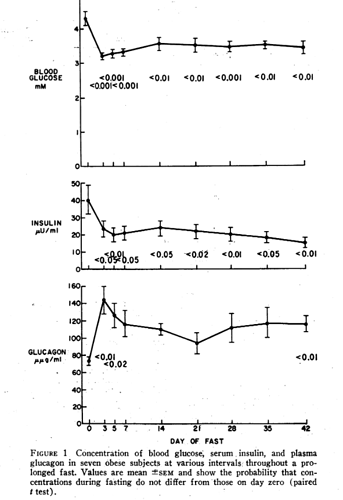From what I read until now I understand this: eating carbs makes insulin rise. And insulin supresses ketone production in the liver. My pancreas is working OK; it produces insulin as needed and that protects me from keto-acidosis.
I am assuming I understood the above right. Please correct me if I am not. But if that is correct, I have a question about how it works when not eating. Say I start a fast. Blood glucose goes low, therefore so does insulin. So ketone production in the liver is not so much suppressed. Ketone levels in the blood go up.
Will in this case the high ketone levels make insulin rise again?
If not: what in this situation protects me from keto-acidosis?


